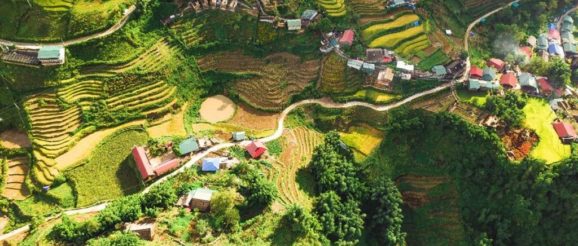Having Critical Conversations In Difficult Locations — Impact Boom | Social Impact Blog & Podcast | Global Changemaker Community | Social Innovation, Enterprise, Design

I’m particularly careful internationally. It can sometimes be hard enough to know what people in Australia think about LGBTI+ communities, let alone what people in vastly different cultural and social contexts think. In fact, for many of the countries I have been heavily involved with this year, there are varying levels of action criminalising LGBTI+, ranging from – dare I say it – ‘light’ criminalisation, to more severe measures, including the death penalty.
When we think about what Australia can add to these conversations, Australia has not always been a leading force. However, in social change and social entrepreneurship, and more recently LGBTI+ rights, I feel particularly proud. We have an incredible and growing range of governmental bodies, incubators and societal drive for more ethical business and inclusive societies.
The need was clear. In Australia at the time, the marriage plebiscite was in full swing, yet most of the advocacy, and resources provided were to a very select audience, not inclusive of many of the ethnically and culturally diverse communities in Australian communities.
In many ways, the circumstances for LGBTI+ communities in Laos is similar to Australia. Currently few legal protections exist against discrimination, and while homosexuality is not criminalised, neither is it very socially accepted.
Not only did we have phenomenal trans-women, gay men, and Mikhara as a queer woman on the panel, but we also had the parent of an LGBTI+ Lao person – the country’s first trans-woman doctor, Dr Inleusa Basengkham. Dr Basengkham’s father was a man in his 70s from a remote rural village, and while describing his daughter and how proud he was of her, there was not a dry eye in the room.
When I think of the pain of LGBTI+ people globally, those of diverse genders and sexualities, it is sometimes hard to imagine their circumstances. Even for myself, my identity has become so normalised that it is something that I almost never think about – a true sign of privilege. And yet, it wasn’t too long ago that I felt the crushing feelings of isolation and denial of identity. And I think it is one of the most important things that we as humans across cultures can seek to understand – our basic human condition which crosses all forms and boundaries. It is the basis of powerful conversations, and even more powerful social change.
As a subject for social entrepreneurship and change, the topic of LGBTI+ is important, but often completely ignored by the entrepreneurship cohort, remaining the focus primarily for non-profits and advocacy organisations.
While each delegation so far has had its own theme – first it was HR & tech with Dr Cameron Cliff, then mental health with Nicole Gibson, and now LGBTI+ inclusion and diversity with Mikhara Ramsing – all have also had an important under-current of social change and social entrepreneurship.
I believe this combination created a powerful launching pad for advancing social issues in countries with varying levels of social and legal perspectives. Simply put, money talks. Where policy was often found to be too slow, or society lagging behind in human rights, entrepreneurship was providing a way forward to propel action and change for social issues. In many ways, this is often the core reason we go into social entrepreneurship in the first place.
Overall, the events that we held on these difficult topics, and in difficult contexts, were powerful. Often, the most powerful events are the strongest – while being that little bit harder to execute or organise, for whatever reasons. But that is exactly why we should make these programs possible. As Australians, I believe we have a particular role, if not in providing thought-leadership, then in role-modelling and opening up the rights we have achieved, so they may be gained more broadly. And that, is exciting.
